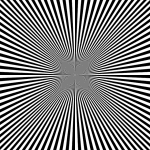“Neither Fish Nor Fowl”

I love these cynical often fact-free analyses of my conversion and supposed ultimate theological commitments. Steve Hays, of Triablogue fame (no dummy, though still somehow an anti-Catholic) just doesn’t get it. I don’t think he ever will, because these things are so elementary. Having failed (just like James White) in his attempt to play the “ignorance card” with regard to my conversion, he now resorts to what might be called the “chameleon” or “sheep in wolves’ clothing” special pleading rationale, to try to explain away a Catholic convert. I’m not really a Catholic, you see. That’s the key. Neither is Scott Hahn (with whom I’m honored to be mentioned in the same sentence). Rather than elaborate further, I’ll simply cite Steve’s words, from his post on the topic, about yours truly.
*****
I had written in his comboxes:
In the position you are in, it was wise to use evasive humor. If you continue to admit that I may still (possibly) be in a state of grace and refuse to apply the word “apostate” (and all the unsavory aspects that conjures up) to me, then you have to deal with your less charitable mates like DJP and no doubt many other fans of yours who think like he does.
If you change your mind, then I believe you will have to struggle with a great deal of cognitive dissonance and explain how an apostate unregenerate person can write all the stuff that I write, much of which even you would agree with, including, e.g., my strong defenses of the Bible just last night in responding to Ed Babinski on the “last days” / false prophecy issue.
So either way, you’d be in the hot seat, now that your mythical scenario of my alleged former blissful ignorance and superficiality was shown to be precisely that: blissfully ignorant and superficial.
I don’t fit into the category you thought I was in. And I know that gives you pause, because you are a thoughtful person, and know better than to make the silly quick judgments of folks like DJP (who couldn’t even comprehend my half-jesting reply) and travis, etc.
You may not admit this publicly, but it doesn’t take a rocket scientist . . . even this little crack of sorts gives me hope that you can reason your way out of the morass of self-defeating anti-Catholicism some time in the not-too-distant future.
Steve cited that and then “replied” (all emphases added):
2.I also draw a distinction between the laity and the clergy. Someone like Rahner, Raymond Brown, or Benedict XVI is going to be far more self-consciously consistent about his theological commitments than the average layman.
There are Catholic laymen who, because they’re involved in group Bible studies with their Evangelical friends and coworkers, end up with a personal theology that is more Evangelical than their church.
3.Apropos (2), many Evangelical immigrants to Rome bring along a certain amount of contraband theology stashed away in their luggage.
As I’ve observed in the past, they are often far more conservative than cradle Catholics or the clergy. Indeed, they’re often at odds with their adopted denomination.
So guys like Dave Armstrong and Scott Hahn present an artificially Evangelicalized version of Roman Catholicism.
Consider Hahn’s use of covenant theology to defend and explicate Catholic dogma. This is clearly a carryover from his Presbyterian past.
He’s grafting elements of one theological system onto elements of an opposing theological system.
So they end up with a sterile hybrid theology that isn’t consistently Catholic or Protestant.
4.The reason that an apologist like Hahn is successful in bringing Evangelical fence-straddlers over to the Rome fold is precisely the because he has erected an Evangelicaloid bridge between the two traditions.
When Evangelicals read about his version of Catholicism, it looks uncannily familiar. A family resemblance. They’ve seen it before. The shock of recognition. A long lost son. Twins separated at birth. This is what we always believed!
5.When they present Catholicism, the outside surface of the door has a heavy coat of Evangelical paint, while the inside surface of the door has a Catholic coat of paint.
Kind of like the Gingerbread house in Hansel and Gretel – with Evangelical icing, sprinkles, gum drops, M&Ms;, marshmallows, and candy canes on the outside, along with a yummy aroma from the chimney.
And later in the comments:
I don’t read Catholic popularizers and lay apologetes to learn about Catholic theology.
I read them to study the bad arguments for Catholicism.
. . . The RCC turned its back on the Gospel with the Council of Trent.
5. In addition, Vatican II codified modernism.
. . . there’s nothing to prevent the RCC from going the way of the other liberalizing and dying mainline denominations.
* * * * *
This was brought to you for both humorous and educational purposes: I know, it is very funny (while sad at the same time), but we need to know how our evangelical friends regard us (particularly us lowly, “hybrid” convert-types). Whatever truth they see in our views, they will tend to say came from Protestantism, but in their ignorance of the extent of the common ground between Catholics and Protestants, they often seem to be unable to comprehend that a good thing in Catholic theology might have no particular reference to Protestantism, either historically or theologically.
So, for example (it’s happened a million times), a person of this perspective might see me defending material sufficiency of Scripture and simply regard that as “sola Scriptura light.” It is not; it is a perfectly Catholic point of view, which doesn’t deny the authority of Tradition or Church in the least. It is assumed that any significant interest in the Bible must be latent Protestantism (particularly, in a convert).
Well, in a sense I can say (even with a degree of pride and affection for my past) that my interest in the Bible stemmed from my evangelical experience, because that is where I first learned to love the Bible and cherish and study it (and evangelicalism excels in, and is to be highly commended for, teaching this very thing). It doesn’t follow, however, that Catholicism is “anti-Bible,” simply because I learned it there before my conversion, or because your average Protestant is more biblically-literate than your average Catholic. Nor does it follow that everyone who loves the Bible must be a closet proponent of sola Scriptura.
Nothing – repeat, NOTHING I do or believe now is inconsistent with magisterial Catholicism in the least. I may emphasize the Bible relatively more, because:
1) it is true that I do love to do Bible study,
and
2) this is the language that reaches Protestants, who constitute my primary “target audience” for my apologetics.
But that is altogether a “Catholic thing” as well as a “Protestant thing.” Catholics have defended the faith from the Bible since Christian time immemorial (see the Fathers). It’s the same with sola gratia, which we fully believe. Catholics aren’t Pelagians. When we say we are saved by God’s grace and it alone, we aren’t closet evangelicals, or ignorant Catholics, but good, Tridentine Catholics. We don’t even have to deny all soteriological imputation altogether or some measure of “faith alone.”
Or I may write about God’s providence and predestination: both very Catholic things. I may defend the Holy Trinity or the Two Natures of Jesus, or evangelize, or go to prayer meetings, or seek mystical experiences with God, or be a charismatic, or feed the hungry. Ditto. It’s all “Catholic.” I’m a Catholic. I accept all that the Church teaches; all her dogmas, and in fact, I believe (following my mentor Fr. Hardon and statements in St. Thomas Aquinas and Cardinal Newman) that anyone who doubts any dogma of the Catholic faith has lost the supernatural virtue of faith.
That’s what I am. Now Steve can play games with the “ignorant Catholic who makes it to salvation despite the Church, blah blah blah” card all he likes, but it won’t work with me. I was no ignorant Protestant, and I am no cafeteria Catholic. He tried to make out that I was a stupid Protestant, and now an equally clueless Catholic who doesn’t know the teachings of his own Church. It’s a losing, desperate effort. He’ll deny implying this out of one side of his mouth, yet anyone can see what he is driving at in this present post.
Give it up, Steve. I know you said you liked me as a person and you seem most reluctant to label me as an apostate. It’s good to be charitable and nuanced, but your anti-Catholic view (not Protestantism per se, but only the fringe anti-Catholic aspect of a tiny group of Protestants) demands the charge of apostasy in my case. I willfully rejected certain false teachings of Protestantism (while continuing to joyfully acknowledge many more things that we both hold in common) and accepted the complete teaching of the Catholic Church with sufficient understanding and full consent of the will (and, I might add, great joy).
Therefore, based on your belief that the Catholic Church is “an apostate denomination” (stated later in this same paper), I MUST be an apostate (at least in a “theological, doctrinal” outward sense), since I accept all that teaching (and I understand perfectly well what it is that I accept: not in the sense of exhaustive knowledge, of course, but in terms of the particular tenets and doctrines that Catholics are required to accept and believe in faith). There is no logical way out of this. That’s why I said that your anti-Catholicism will cause you cognitive dissonance somewhere down the line. But the “hybrid” sophistry is obviously the way you rationalize seeming difficulties in explaining how folks who obviously love the Bible and know a bit of theology, like myself and Scott Hahn, can manage to merge that with allegiance to Catholicism.
It’s because it’s fully Christian, my friend . . . the sooner you grasp that, the better off you’ll be. You may disagree with this, that, and the other (just as you do with your hundreds of fellow Protestant denominations), but it is a Christian system. And unless it is regarded as that, there is no possible logical way to regard Protestantism as a Christian system. It is either both or neither. The true “hybrid” here, therefore, is your viciously self-defeating, ludicrous anti-Catholicism, not the allegiance of a former evangelical Protestant to Catholicism in its fullness and entirety.













